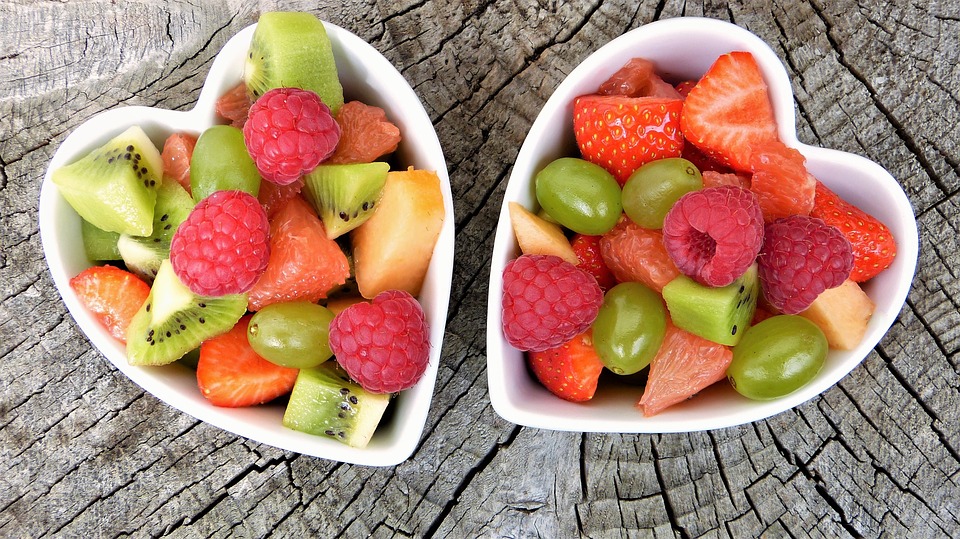We all know that seasonal fruits are rich in good nutrients: fiber, vitamins, minerals (calcium, potassium, etc.) and antioxidants. They are excellent against the risks of cancer, obesity and cardiovascular diseases. Also, both for health reasons and for indulgence without feeling guilty, we always appreciate this little touch of sweetness to finish the meal. Whether alone, in fruit salad, with fromage blanc, in verrines, in compote or even with panna cotta, it is also a good way to reach the five fruits and vegetables per day. However, have you ever noticed that this very French habit is rarely seen abroad, and particularly in Asia? Eating fruit for dessert is actually a bad idea, and we’ll explain why.
Lovers of grapes, citrus fruits, bananas, pears, apricots, exotic fruits, mango, red fruits, strawberries, pineapples and other fruits of all kinds? We also explain when to consume them!
Eating fruit for dessert: why it’s a bad idea

Why should you avoid tickling your guests’ taste buds with good fruit at the end of a meal? The reason is very simple: it can disrupt and slow down digestion. Indeed, each food has its own digestion time. Digestion of vegetables, seeds, nuts, fish, meats and starchy foods can take between thirty minutes and five hours. However, fruits are digested more quickly. Also, if we consume them following the meal, they will end up blocked for several hours between the stomach and the small intestine.
Thus blocked, they cannot be digested by the small intestine and release their nutrients there. They will then begin to ferment in the stomach, secreting sugar in the process, then alcohol. Furthermore, stomach acids will have plenty of time to destroy their delicious vitamins.
What consequences does fruity dessert have on our health?

Many people complain of having difficulty digesting fruit. However, they are far from being indigestible! The problem is that consuming them at the wrong time can have many harmful effects. In case of a fragile digestive system, eating fruit for dessert often results in stomach aches. We then notice heaviness in the stomach, bloating, flatulence, heartburn, even cirrhosis. In case of irritable bowel syndrome, this can also cause pain and cramps. Conversely, it should be noted that for people who have a fast metabolism or easy digestion, fruit for dessert may pose fewer problems.
Additionally, some of the fruit’s nutrients are lost in the process. Added to all these inconveniences is the loss of the nutritional quality of the fruits.
If we don’t eat them for dessert, when is the right time to eat fruit?

To avoid any inconvenience, you should therefore avoid eating fruit for dessert. However, when is the right time to make the most of it without suffering from digestive problems? The ideal is to eat fresh fruit outside of meals. It is possible to eat it on an empty stomach in the morning (preferably whole, in a smoothie or fresh juice). Otherwise, it is possible to consume it for an hour avant meal and three or four hours After the meal. This will give your stomach plenty of time to free itself. If you absolutely want to eat fruit for dessert, it is better to eat your raspberries, blueberries, blackberries, oranges, cherries or even figs cooked. The fibers from cooked fruits are thus more easily assimilated by the fragile intestines.
Good to know: If you opt for a herbal digestive herbal tea, do not consume it directly after a meal either! To consume half an hour before eating or an hour after to avoid slowing down the action of digestive juices.
Besides fruit, should you avoid other desserts and which dessert is safe to eat?
Some desserts, very high in sugar and saturated fatshould be avoided if you are looking to take care of your health. Industrial pastries such as packaged cakes, donuts or pastries, for example, often contain ultra-processed ingredients, hydrogenated oils and a lot of refined sugar. These desserts therefore increase the risk of blood sugar spikes, weight gain and can promote chronic diseases such as diabetes or cardiovascular disease. The same goes for industrial ice creams or chocolate bars which are high in calories and low in beneficial nutrients.
For a dessert that is both delicious and healthy, opt for alternatives high in nutrients and low in added sugars. For example, plain yogurt (like Greek yogurt or kefir) with nuts and seeds or fruit compote with no added sugar are great options. Dark chocolate with a percentage of cocoa greater than 70% is also a good idea, as it contains health-beneficial antioxidants.
You can also prepare a pudding with chia seedsvegetable milk and a touch of vanilla. Chia seeds are rich in fiber, omega-3 and provide a creamy texture without the need for added sugar. A coconut milk flan will also be naturally sweet, low in refined sugars, but also high in healthy fats and protein. Finally, a light mousse made from dark chocolate and a little vegetable milk or aquafaba (whipped chickpea cooking water) will be low in sugar and rich in antioxidants. This vegan chocolate mousse is also really delicious!


